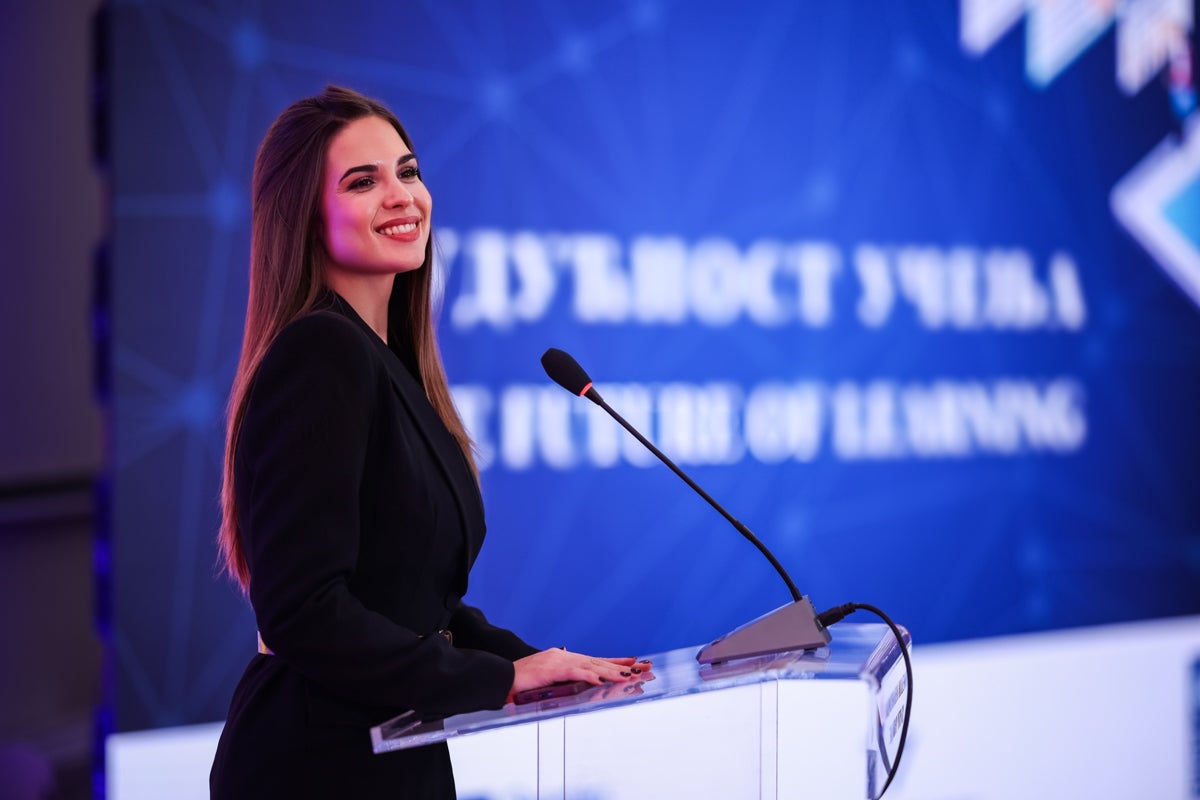Beijing+30 Youth Blog: By understanding the power of language, we can build a Serbia where gender equality becomes the cornerstone of our identity
Date:
Author: Ljubica Darković

In the heart of Serbia, amidst its rich history and vibrant culture, lies a crucial yet overlooked opportunity for transformative change – gender-sensitive language. As we commemorate the 30th anniversary of the Beijing Declaration, a better understanding of gender-sensitive language stands as a vital tool in shaping our perceptions. This effort not only honors the spirit of the Declaration but also fosters gender equality in our commitment to creating a society where everyone's potential can be realized, free from the constraints of outdated gender norms.
Language not only reflects our thoughts but molds them, shaping our reality. It can either reinforce stereotypes or challenge them, opening doors to new possibilities for all genders. In Serbia, traditional views on gender roles often echo in daily communication, subtly dictating the 'appropriate' paths in careers, behaviors, and ambitions based on one's gender. Changing this narrative starts with transforming the language we use.
The Beijing Declaration and Platform for Action emphasizes the importance of non-discriminatory language, especially in areas such as media, education, and human rights. To be fair, Serbia has begun to address these issues through legislative measures. The Law on Gender Equality, adopted in 2021, is a commendable step forward. It explicitly mandates the use of gender-sensitive language in public documents and media communications, aiming to reshape public discourse and reflect a commitment to equality. But is it enough?
Educational reform is equally critical. Schools are the nurseries of future generations, where the seeds of equality can (and should) be sown early. Integrating gender sensitivity into the Serbian educational system means not only revising textbooks but also training teachers to understand and use language that empowers all students equally. Imagine a classroom where every child is encouraged to pursue their interests freely, without the constraints of gender expectations, creating a nurturing environment that sees no limits to their potential!
In the economic sphere, although women constitute nearly half of the employed population, they are significantly underrepresented in senior management roles and decision-making positions. According to UN Women, only 29,37% of managerial positions in Serbia are held by women. Promoting gender-sensitive language in corporate policies and communications not only fosters a more inclusive workplace culture but also enhances visibility for women leaders. This visibility is crucial, as it inspires young girls and women to aspire to these roles, seeing them as attainable, valued and appreciated.
As a child, I often wondered why women serving as government ministers were titled “minister” and not “ministarka.” The answer I received was always the same: “Those are just words.” My academic journey significantly deepened my understanding of the profound impact of “just words” on gender equality. When my own university diploma included the male form of my professional title, it was a turning point. I realized that everyone is affected by gender biases, myself included, and language plays a significant role in perpetuating these biases. I continued my research in this field throughout my graduate studies and into my current PhD work, determined to make a difference. Perhaps even more importantly, I made it my mission to engage people around me in conversations about the topic, striving to change one prejudice at a time.
However, the journey towards gender-sensitive language is not without its challenges. Societal attitudes, deep-seated norms, and a reluctance to move away from what is perceived as traditional pose significant obstacles. Overcoming these barriers requires a broadened perspective, a willingness to embrace change, and a joint effort to demonstrate the benefits of a more equitable society.
As we move ahead, engaging in meaningful public debate is essential to deepen our understanding and commitment to gender-sensitive language. A public dialogue with the purpose of educating communities and challenging stereotypes offers a golden opportunity to understand the true purpose of gender-sensitive language. For decision-makers, it is crucial to articulate the reasons and benefits behind gender-sensitive language reforms clearly and compellingly. For the public, this is a moment to advocate and share a vision of a future where equality is not just an ideal but a reality. Through active engagement and dialogue, we can collectively ensure that the implementation of gender-sensitive language becomes a celebrated step forward, fostering an inclusive society where every voice contributes to our national tapestry.
By understanding and harnessing the power of language, we can help to build a Serbia where gender equality becomes the cornerstone of our collective identity, resolutely and wholeheartedly aligning with the principles of the Beijing Declaration. Let this be our legacy: a Serbia celebrated not just for the richness of its history and the beauty of its landscapes, but as a beacon of unwavering commitment to equality and a profound respect for every individual.

Biography:
As an English major and a passionate gender equality advocate, I have researched, published, and presented on topics addressing various aspects of women's portrayal in the media and the public discourse. I am currently a PhD student at the University of Belgrade, focusing on the media reporting of gender-based violence.
Email address: ljubicadarkovic95@hotmail.com
Social media accounts: